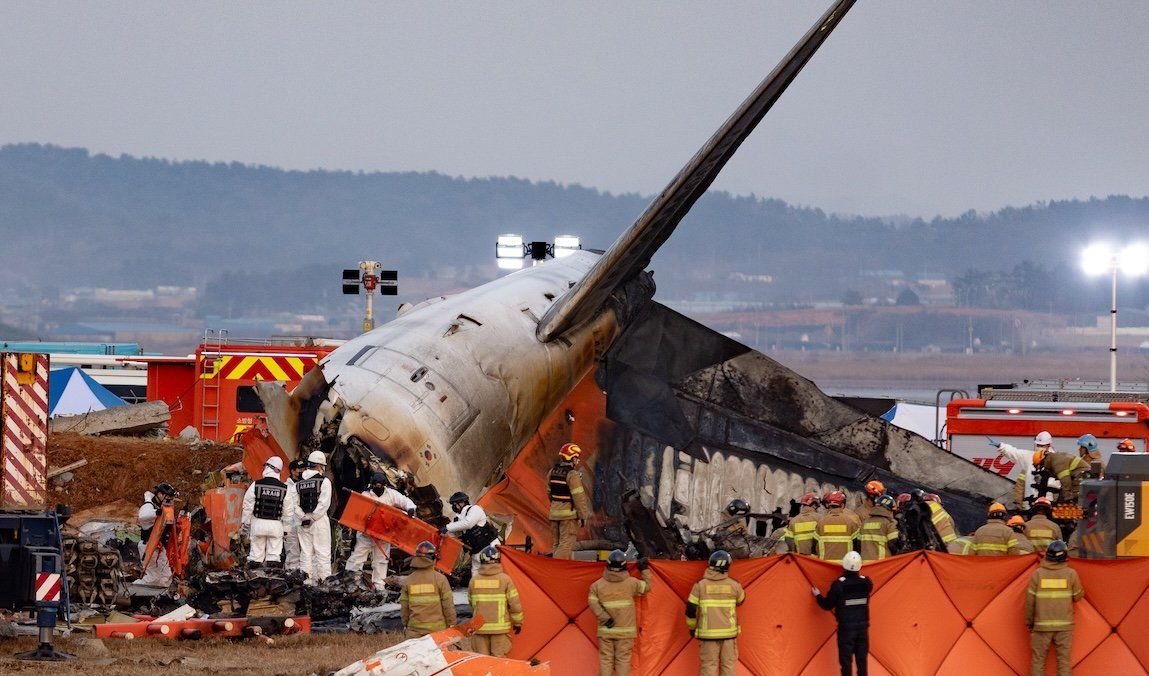South Korea is in mourning after the crash of Jeju Air flight 7C 2216 during an emergency landing attempt at Muan International Airport on Sunday. The Boeing 737-800 was en route from Bangkok to Muan when it suffered a suspected landing gear failure, possibly caused by a bird strike. The aircraft skidded off the runway, collided with a concrete barrier, and burst into flames, killing 179 people aboard. Only two flight attendants survived.
The tragedy is South Korea’s deadliest aviation disaster since 1997. It comes at a politically volatile time, two days afterChoi Sang-mok became acting president, replacing Han Duck-soo, who was on the job for just two weeks. Han had replaced President Yoon Suk Yeol, who was impeached on Dec. 14 for attempting to impose martial law on the country on Dec. 3. But Han was shown the door for failing to appoint three new Constitutional Court justice nominees to review Yoon’s impeachment. Choi now faces calls for accountability over airport safety regulations and infrastructure maintenance and has pledged a thorough investigation into the cause of the crash. He has demanded that the country's airlines undergo an emergency safety inspection and declared a weeklong period of national mourning.
The Jeju Air disaster came on the heels of another deadly crash – that of an Azerbaijan Airlines Embraer E190, which went down in western Kazakhstan, killing 38 of 67 people aboard last Wednesday. Experts believe a Russian air-defense missile downed the plane. While Vladimir Putin apologized for the incident, he did so without taking responsibility. On Sunday, Azerbaijan demanded that Russia admit responsibility and compensate the government and affected families.
The incident brings the number of deaths due to missile strikes to over 500 in the past decade, making missiles the number one cause of deadly plane crashes, according to the Flight Safety Foundation’s Aviation Safety Network. Other examples include a second case attributable to Russia, the midair destruction in 2014 of a Malaysia Airlines Boeing 777 flying over Ukraine, which killed all 298 aboard, and the 2020 shooting by Iranian forces of a Ukraine International Airlines Boeing 737 departing Tehran, which killed all 176 people onboard.
